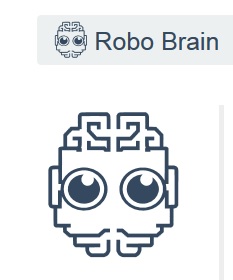Imagine if your Website never required a designer or even yourself, for that matter? We are not talking of template-based Site design platforms. What we are talking of is a Website design platform without any human contact at all. That’s right. This startup uses artificial intelligence (AI) to create Websites. Just post your Content & sit back as your Site is designed & hosted in the Cloud.
Called The Grid, when you post to your Site using this platform, its engine measures & analyses your Content & crafts a Site “driven by human-centered values, constraints & direction.” As the developers of The Grid have said: Think of it as your own personal AI designer.
The engine auto-designs your Site, publishes it, & stores it on repository Web-hosting service, Github. Your source Content will live in a Github repository that you can access & download anytime. All Sites hosted on The Grid will be available on the Web with native Android & iOS support. Such Sites will not only be responsively designed based on device, but responsively designed based on your Content you upload.
For those who already have running Websites, The Grid team will provide tools so that you can migrate your existing Site. In addition, 3rd parties can use the APIs to build tools that can add additional functionality for migrating Content.
The Grid harnesses the power of AI to take everything you throw at it – videos, images, text, urls & more – & automatically shape them into a custom Website unique to you. As your needs grow, it evolves with you, effortlessly adapting to your needs. Want to add e-commerce? Social feeds? A different layout? The Grid just takes care of it.
The Grid has been founded by Dan Tocchini, who is also the CEO. Dan is the creator of GSS (Grid Style Sheets) & partner of D4 Interactive Agency. The other founders are Brian Axe, also the Chairman, who is also the creators of Google AdSense, & Daniel Tocchini, who is VP, Biz Development. Daniel has worked with Fortune 500 companies including Disney, Microsoft & ESPN.
The Grid plans to offer the service for US $25 per month for a regular subscription. But for early starters, there’s a discounted rate of US $8 per month available for now. Such “Founding Members”, who lock-in subscriptions during the pre-order period will receive ‘Founding Member’ features & may participate in pre-order referrals rewards.
The features include:
- 1 year pre-paid subscription
- Subscription begins v1 release, late Spring 2015
- Life-time subscription rate of $8/month
- 7 Sites, custom domains OK
- Pretty much unlimited contributors, storage & bandwidth
- Commerce engine, due late 2015
- Grid NFC Token (limited gold edition)
Those who join up need not worry about hosting. All Grid sites include fully-managed, high performance Cloud hosting.
Video Credit: YouTube/TheGrid
Advertising Message

